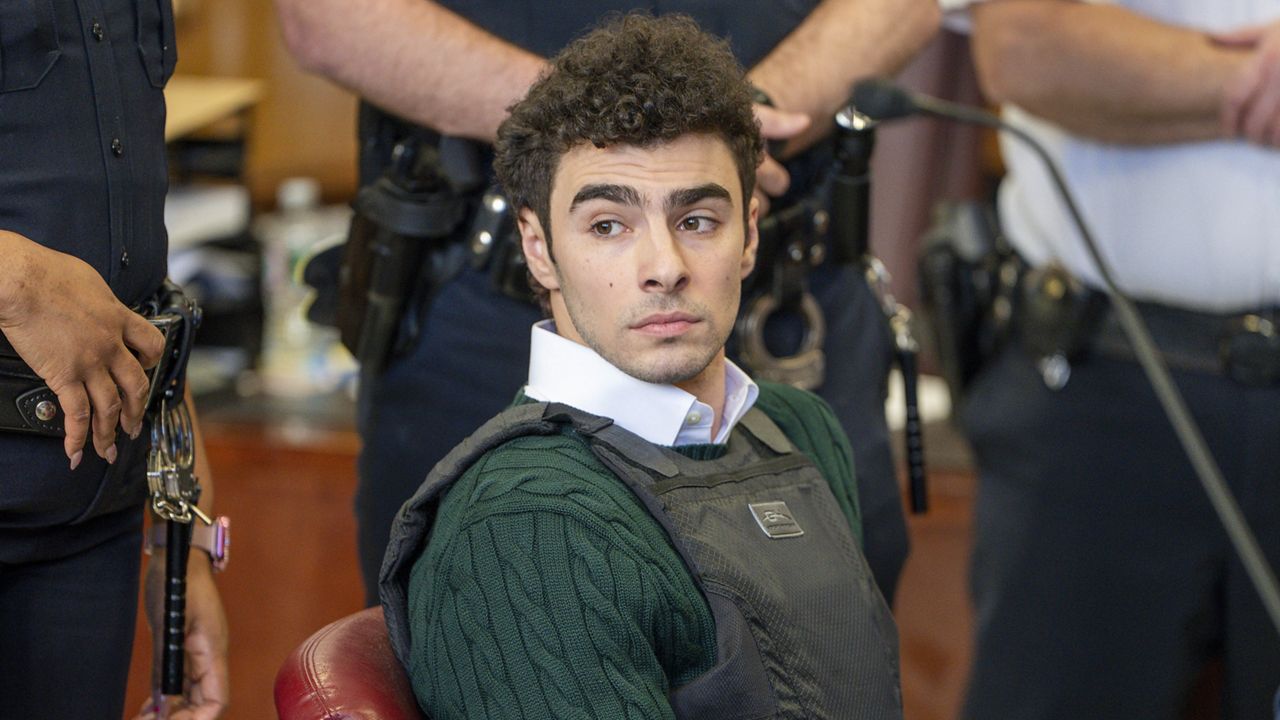SACRAMENTO, Calif. — Homelessness is the biggest issue facing California. Billions of dollars have been allocated in the state budget, new programs and initiatives are being rolled out across the state.
It’s a multifaceted problem that will require a collaborative effort between cities and state officials.
The statewide crisis was the connective tissue of Gov. Gavin Newsom’s five-day “State of the State Tour.”
The governor spent each day focused on a specific issue that all tie into solving the homelessness crisis.
Newsom sat down with Spectrum News Sacramento Correspondent Daniela Pardo to talk about the statewide tour and how California plans to get people off the street.
The main topics on the tour were homelessness and affordable housing, criminal justice reform, health care reform, mental health reform, and the opioid crisis.
The first stop of the tour was in Sacramento, where Newsom unveiled a $15.3 billion dollar budget for new investments to directly impact the homelessness crisis.
New investments such as 1,200 new small homes to help people transition from living on the streets to more permanent, sustainable housing.
Newsom acknowledges these small homes are just one part in helping the entire issue. The focus is on forming partnerships between the state and cities.
“At the end of the day, though, I’m not the mayor of California. Localism is determinative. It will be the mayors that drive this. It’s those local plans, local strategies and we want to support them,” Newsom said.
The lead up to the unveiling of the accountability plans was rocky. Initially, cities promised to reduce homelessness by 2%, a number Newsom felt was lacking ambition. After a contentious back-and-forth, where Newsom withheld the $1 billion dollars in funds for cities, the two sides agreed to raise the reduction to 15%.
“We’re not going to invest in failure anymore. Encampments are a top priority. Dealing with encampments, get people into temporary housing onto permanent, supportive and then on to on their own two feet. New day, new energy, I’m really looking forward to the next few years to produce real progress,” Newsom said.
The partnership between cities and the state on homelessness is something Newsom felt was lacking when he was the Mayor of San Francisco. He noted back then, it was all on the city itself to deal with the homeless population, though he applauded Gov. Jerry Brown for allocating half a billion dollars for homeless funding during his term.
“It was never the state’s responsibility, but it’s clear that over the last decade or so that the cities and counties can’t do it alone,” Newsom said, “…This year, two-year budget. $15.3 billion — new accountability requirements, new strategies. An intensive focus on what’s happening on the streets and encampments. Focus long-term — $3.7 billion to frame board and care homes and deal with our mental health system. We did that with CARE court, adding another tool to the toolkit, so we’re taking every look at every approach.”
Los Angeles Mayor Karen Bass has taken on homelessness on a local level. Days after taking office, she declared a state of emergency on homelessness. Many people have called for the governor to do the same, but he doesn’t see a reason on a state level.
“It doesn’t unlock anything that already exists… it doesn’t create more funding streams from the federal government — it’s not like a traditional drought emergency or wildfire emergency that unlocks FEMA dollars in the like. But we’ve had a sense of emergency. We’ve declared with deep urgency a framework of focus,” Newsom said.
Newsom said he’s in constant communication with the mayor, and is proud of how she is approaching homelessness with the care and attention that it needs.
Bass launched Inside Safe, an initiative to identify and engage with people living in encampments and work to find them supportive housing.
“She’s just getting started and I can’t wait to see what she’s accomplished a year, two, three from now,” Newsom adds.
While Newsom touted the new investments as progress toward ending the statewide problem, California Republican leaders are not convinced anything will get done.
“This is just another band-aid on a crisis that is out of control in California,” Senate Minority Leader Brian Jones said in a statement. “We know that throwing money at this problem doesn’t work. California has already spent $20 billion over the last five years on homelessness and the crisis has only gotten worse with more than 172,000 people living on the streets in this state.”
A connected issue Newsom addressed on his statewide tour was criminal justice. On Friday, Newsom visit San Quentin State Prison to announce a major reform that will change the oldest prison in the state to the biggest rehabilitation center.
Newsom has called to shut down four different prisons across the state and the transformation of San Quentin is another step in transforming the criminal justice system.
The governor has heard from critics who believe the state takes a criminals-first approach as opposed to supporting victims of crimes.
“It’s the exact opposite. We want to keep people safer. The recidivism rates are off the charts. I mean how many people have parole violations — not everyone goes back into the system, but a substantial portion — a majority actually recommit an offense that gets reconnected to the criminal justice system,” Newsom said.
Newsom also announced on the tour California will now work to produce its own insulin to help cut down the cost. He also announced the state will do the same for naloxone, the life-saving medicine for people overdosing on opioids.
The governor says he’s looked into doing the same for abortion medication. Mifepristone is the center of a federal case in Texas, which could get rid of the FDA approval for the drug.
“Our entire insulin strategy is predicated on FDA approval. So FDA approval is fundamentally the point of contention here with the Texas case, but look if we’re privileged to be in that position, I assure you we will jump at that opportunity,” Newsom said.
Earlier this month, Newsom announced California is cutting ties with Walgreen’s for stopping the sale of mifepristone in 21 Republican-led states. He promises to work to protect reproductive health care no matter the Texas judge’s decision.
“This, to me, is sacrosanct. It’s foundational and fundamental. It’s the core of values of freedom and choice in the state of California and I think this country. It’s beyond me, it’s beyond the pale of imagination that we’re here,” Newsom said.
Health care, criminal justice, and the opioid crisis all tie into the issue and have contributed to the homelessness crisis.
“I hope people see a connective tissue — the issue of homelessness is the ultimate manifestation of our failure as a state and nation. We own this — we have to own a greater sense of urgency and responsibility,” Newsom said.
The California Constitution requires governors to address the State of the State to the legislature. He is doing so in the form of a letter that will be delivered this week.
Let “Inside the Issues” know your thoughts and watch Monday through Friday at 8 and 11 p.m. on Spectrum News 1.











